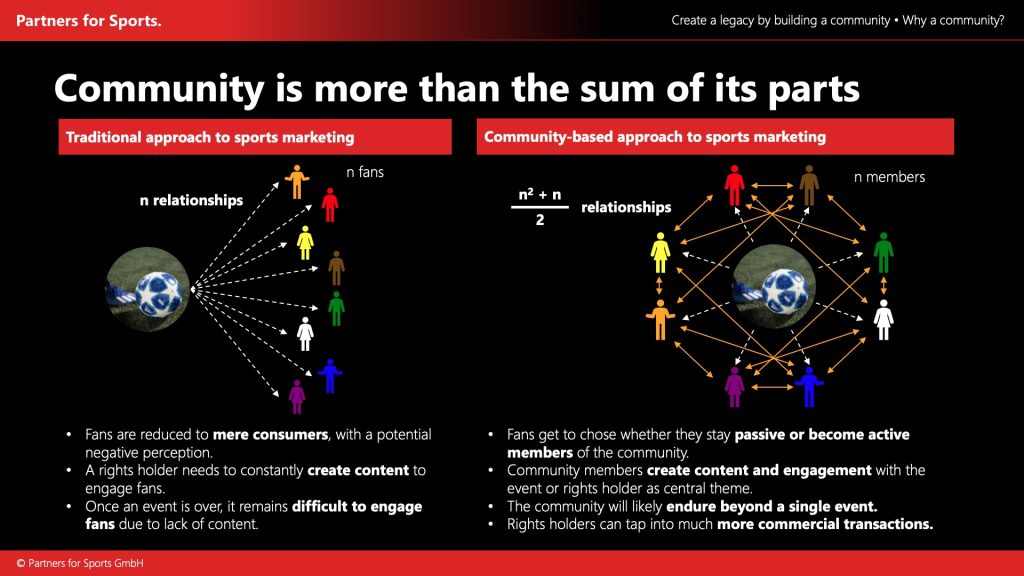Sports marketing is an essential aspect of the sports industry, as it helps teams and organizations promote their events, players, and brands. There are two practical approaches to sports marketing – traditional and community-based. While both have pros and cons, the community-based approach to sports marketing has several advantages over the conventional approach. In this blog post, we will explore the benefits of community-based sports marketing and how it changes how sports teams, organizations, and brands engage with their fans.

One of the critical benefits of community-based sports marketing is the development of n^2 relationships between the rights holder and fans, rather than just n relationships, as seen in traditional sports marketing. This means that fans are now more than just passive consumers but become active community members engaging with the rights holder and other fans, creating more personalized and meaningful connections. As a result, fans are likelier to be loyal, supportive, and engaged with the event or team, leading to increased brand awareness and fan engagement.
Another advantage of community-based sports marketing is the ability of the rights holder to tap into much more commercial transactions. This is because the community comprises fans who are passionate not only about the event or team but about the community itself and, therefore, are more likely to make purchases related to the event or team. This includes, of course, buying merchandise and attending events, but also exchanging goods and value between the fans. By engaging with the community, the rights holder can better understand the wants and needs of their fans, leading to more effective and targeted marketing strategies.
The traditional approach to sports marketing requires the rights holder to create content to engage fans constantly. This can be time-consuming, costly, and ineffective if the content is not relevant or appealing to fans. In contrast, community-based sports marketing allows fans to create content that can be more relatable and genuine. This reduces the rights holder’s workload and creates a more authentic and personalized connection with the fans.
Additionally, community-based sports marketing is more sustainable, allowing for engagement beyond a single event. Once an event is over, engaging fans and maintaining their interest can be challenging. However, with community-based sports marketing, the community can endure beyond a single event, allowing for continuous engagement and connection with the fans. This helps retain and attracts new fans, increasing brand awareness and engagement.
In conclusion, we believe that community-based sports marketing has several advantages over traditional sports marketing, including the development of many more relationships between the rights holder and fans, the ability to tap into more commercial transactions, and the reduction of workload for the rights holder. It also allows for more authentic and personalized connections with fans and sustainable engagement beyond a single event. As the sports industry continues to evolve, we expect to see more organizations and teams adopt community-based sports marketing to engage with their fans and build brand awareness.